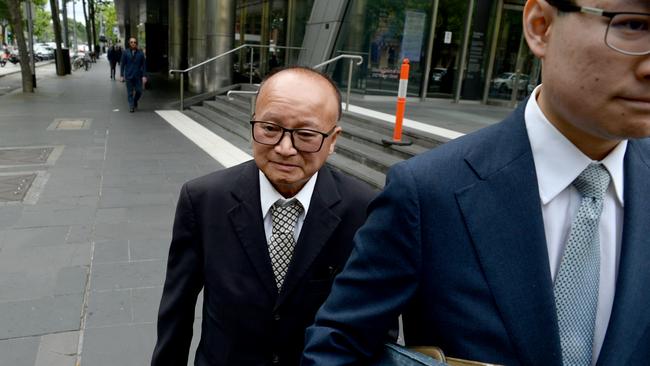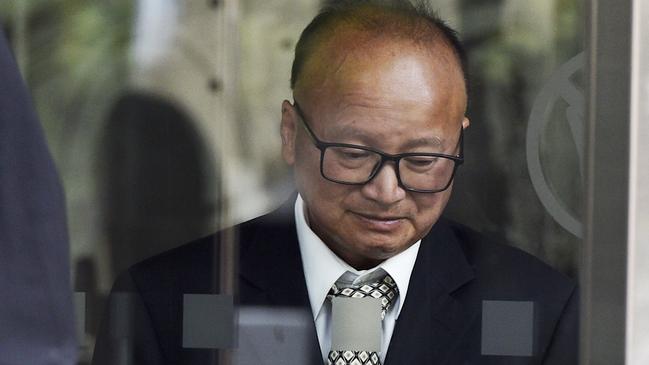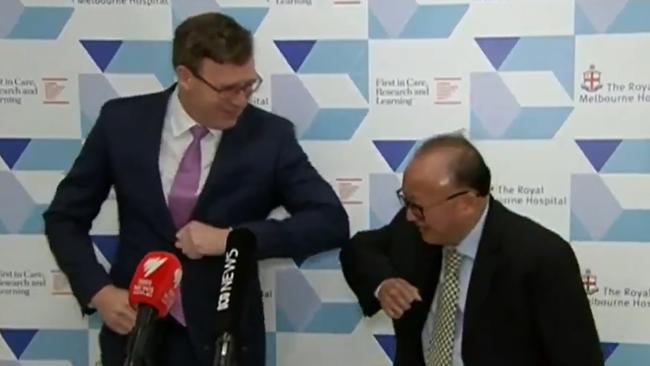Di Sanh Duong trial: Australia’s foreign interference test case ‘not a James Bond film’
Crown prosecutors argue a former Liberal candidate would have been viewed as an ‘ideal target’ to further the Chinese Communist Party’s cause.

Australia’s first foreign interference case won’t be like a James Bond film, but instead will focus on the “subtle form” of influence, as crown prosecutors argue that a former Liberal candidate would have been viewed as an “ideal target” to further the Chinese Communist Party’s cause.
Di Sanh Duong, who is accused of preparing or planning for an act of foreign interference, appeared before the County Court of Victoria for his trial on Thursday.
Mr Duong, also known as “Sunny”, is alleged to have sought a relationship with former multicultural affairs minister Alan Tudge and organised for a $37,450 donation to be presented to him for the Royal Melbourne Hospital in June 2020.
Prosecutor Patrick Doyle told the court that the former Liberal candidate for Richmond was involved with several Chinese organisations that had ties to the CCP agency United Front Work Department.
“Before you start thinking of spy novels and James Bond films, this is not really a case about espionage,” Mr Doyle said in his opening address. “It’s a case about a much more subtle form of interference, it’s about influence.”
The prosecutor detailed Mr Duong’s involvement in community groups, where he served as president of the Oceania Federation of Chinese Organisations from Vietnam, Cambodia and Laos, and as a senior figure in another group, registered with the United Front Work Department.
“The CCP runs a program of influence across the globe. It’s called the United Front System and a main goal of this system is to win over friends for the CCP,” he said.
Mr Doyle told the court the CCP utilised Chinese communities overseas as “vehicles” to carry out the United Front strategy.
He drew attention to Mr Duong’s ties to the Chinese community in Melbourne as well as his frequent visits to China.
“The prosecution suggests that the CCP would have seen the accused Mr Duong as an ideal target to be an agent for the united work program,” he said.
The court was told that Mr Duong and associates spoke about donating medical supplies in a bid to show the Chinese community’s loyalty to Australia and curb racist sentiment held over Covid-19, but instead settled on a cheque.

Ahead of the donation being made, Mr Duong and his friend discussed both Mr Tudge and now Liberal leader Peter Dutton.
In the conversation, it came to light that Mr Tudge was viewed as “rather gentle and not prone to step on people’s toes” whereas Mr Dutton was “too extreme”.
Mr Doyle said the pair viewed the former Coalition minister as someone progressing in his career who had the potential to become the future leader of the Liberal Party or even prime minister.
The court heard Mr Duong and Mr Tudge met over Zoom, where a media event to announce the donation was organised.
Background checks were ordered on Mr Duong but “nothing adverse” was found.
The prosecution told the court that Mr Duong had written to the then-minister requesting a travel exemption for his good friend six months after the donation.
“The accused began that letter by reminding Tudge that he was a former president of the Liberal Party Richmond branch … (and) of his recent donation to the Royal Melbourne Hospital.”
“The crown realised the accused saw the donation as having cultivated a more favourable relationship with the minister which might make him more likely that he would intervene … and help him with his visa exemption.”

Mr Doyle said when Mr Duong made the donation, he “also had in mind both the implications for the broader Australia-China relationship”.
The court also learned of policy suggestions Mr Duong had sent to Victoria’s former attorney-general Robert Clarke on the Australia-China relationship. In the email, he suggested the federal Liberal Party should allow Chinese nationals to develop and cultivate land to sell back to mainland China, and allow China to build a fast train system from Melbourne to Brisbane.
He also said Australia should work with China on economic development, where he offered the Belt and Road Initiative as an example.
Judge Richard Maidment told the jury that they would hear evidence covered under National Security Information laws and that revealing protected identities or communication could carry jail time.
Mr Duong has pleaded not guilty to the charge.
The trial continues.






